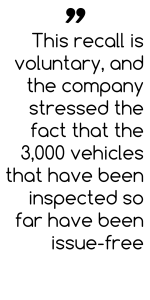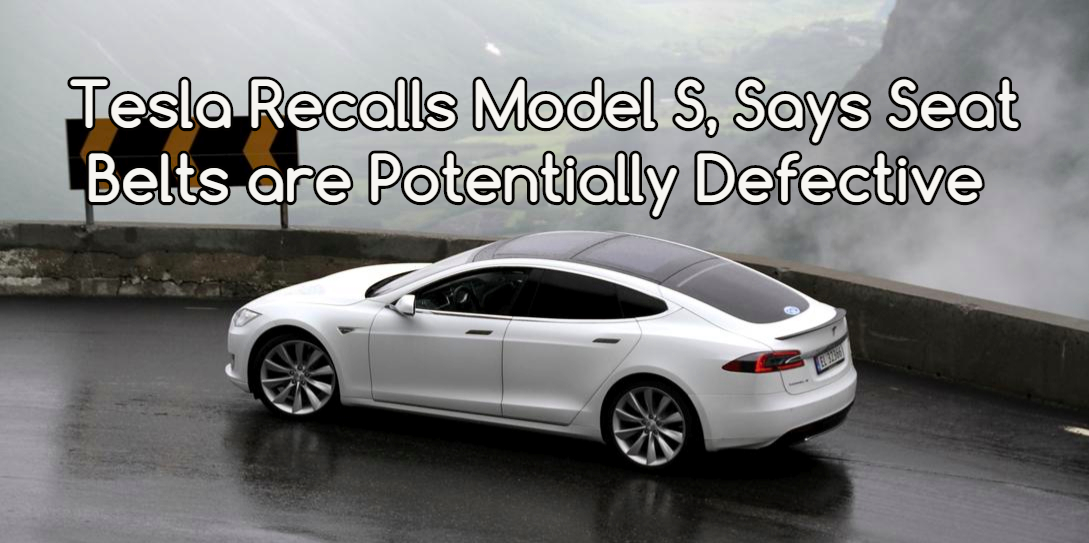Tesla Motors has announced an official ‘voluntary’ recall for approximately 90,000 of the company’s cars, citing a potential defect related to the design of the front seat belts. The recall affects every single Model S car the company has ever produced.
The Silicon Valley automobile manufacturer said that the company’s lineup of Model S electric sedans have a potential seat belt issue related to the belts not correctly connecting to the ‘outboard lap pretensioner.’ The lap pretensioner is the part of the seatbelt mechanism that tightens up in the event of an accident, preventing the driver or passenger from swinging forward.
The problem originally arose when a European owner of a Model S came forward with the issue.
Tesla broke the news to the owners in an email, stating that the original vehicle wasn’t involved in an automotive accident and that there were no related injuries. The company also stated, however, that if an accident occurred, a seatbelt in the same condition wouldn’t ensure the safety of the occupant behind the belt.
The company plans to inspect the outboard lap pretensioners in the Model S vehicles to ensure the seat belts are safe, and will provide any necessary repairs. Tesla stated that after inspecting approximately 3,000 vehicles, though, the technicians have not found any other problems.
This is the biggest recall in Tesla’s history. The company recalled the Model S one other time — in 2014 — because the vehicle’s underbody guard had the potential to catch fire due to a problem with the vehicle’s Li-ion battery.
Since the previous recall incident in 2014, the company has decided to take a different — and perhaps less adversarial — approach to their recalls. This recall is voluntary, and the company stressed the fact that the 3,000 vehicles that have been inspected so far have been issue-free.
Tesla said that anyone who wants to submit their vehicle for inspections can set up an appointment online, or just simply visit a dedicated Tesla repair shop.
The company also stated that it does not have any concerns regarding the vehicle’s rear seat belts.


